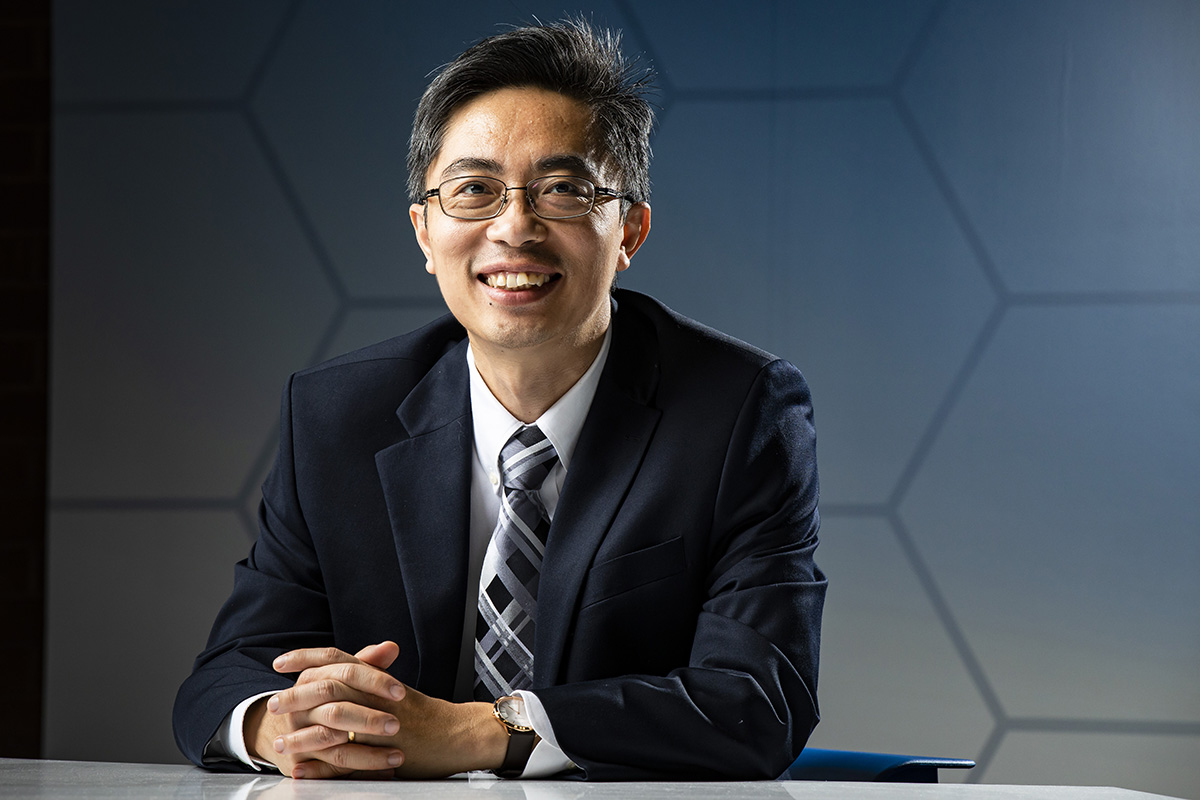
UCF professor Yan Solihin, a computer science faculty member and director of the UCF Cyber Security and Privacy Cluster, has been named a 2023 Distinguished Member of the Association for Computing Machinery (ACM).
Solihin and 51 other individuals representing higher education, industry and research institutions from 14 countries received the honor for their impactful contributions in the field of computer science.
“I feel honored to receive the designation,” says Solihin. “I would like to thank my past and current doctoral students, postdocs and collaborators who have enabled my research projects.”
ACM President Yannis Ioannidis says the distinction recognizes career achievements as well as their work within the organization.
“With the Distinguished Member designation, ACM also highlights how individual computing professionals maintain the health and growth of a global scientific society through membership and active engagement with their colleagues,” he says in a release.
Many processes and features that enable our computers to run faster and more efficiently exist because of Solihin’s work. ACM recognized his impactful research in three particular areas: shared cache architecture, secure processors and persistent memory.
Solihin proposed the idea of partitioning the cache, or the temporary storage on the computer’s central processing unit (CPU), to help a program run at peak efficiently more than 20 years ago.
“My goal then was to identify new performance challenges in the design of multicore caches, which today is the dominant design in most commercial processors,” says Solihin. “At that time, I observed that when two different applications ran on different CPU cores but shared the same cache, the impact of the sharing could produce extremely uneven slowdowns for applications.”
His novel solution partitions the cache to allow applications to be affected by an equal amount, which enables the system to not worry about pathological performance scenarios in the system overall.
Solihin has also pioneered significant research in secure processors, including the encryption method known as split counter mode, proposed in 2006 to improve security and performance. He also introduced the Bonsai Merkle Tree, which protects the integrity of data using less memory. His third contribution, a secure cache coherence protocol for multi-socket systems, ensures that data in various caches remains consistent across multiple processors.
His most recent contributions relate to persistent memory, or data that is not affected by powering a computer on and off. Over the last 12 years, he has worked to improve its security, performance and programmability, introducing the concept of memory-side memory encryption in 2011.
Solihin’s work has significantly influenced an integral part of any computing system: high-performance computer chips.
“Cache partitioning was adopted in Intel processors in 2015, and memory encryption and integrity verification techniques were adopted as a feature in Intel SGX products in 2015,” he says. “Memory-side memory encryption is now a feature of Compute Express Link, an emerging high-speed interface for future cloud computing servers.”
Since joining UCF in 2018, Solihin has founded two labs and led the growth of the UCF Cyber Security and Privacy from four to 16 faculty members who are mentoring more than 50 doctoral students. Under his leadership, the cluster developed the Master of Science in Cyber Security and Privacy, and established the NSF Scholarship of Service in Cyber Security and Privacy program.
He is a recipient of the 2023 HPCA Test of Time Award, the 2023 ACM SIGMICRO Distinguished Service Award, the 2005 and 2010 IBM Faculty Partnership Award, the 2004 NSF Faculty Early Career Award and the 1997 AT&T Leadership Award. Other accolades include being listed in the Computer Architecture Top-Ranked Hall of Fame, the ISCA Hall of Fame and the HPCA Hall of Fame. He is also a Fellow of the Institute of Electrical and Electronics Engineers.
Solihin earned a bachelor’s degree in computer science from the Institut Teknologi Bandung and a bachelor’s degree in mathematics from Universitas Terbuka. He received a master’s degree in computer engineering from Nanyang Technological University, and a master’s and a doctoral degree in computer science from the University of Illinois at Urbana-Champaign.
Written by Bel Huston | Feb. 7, 2024